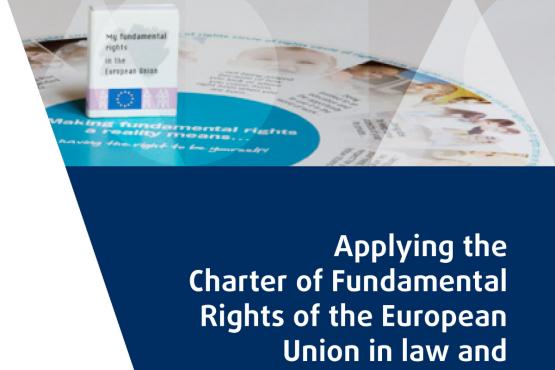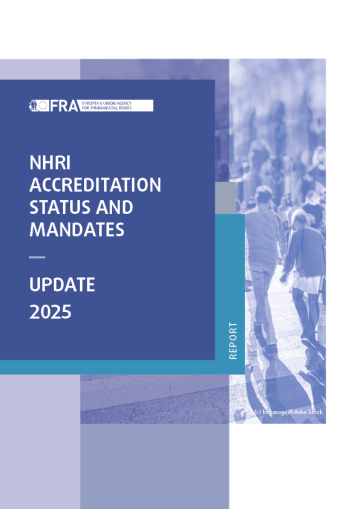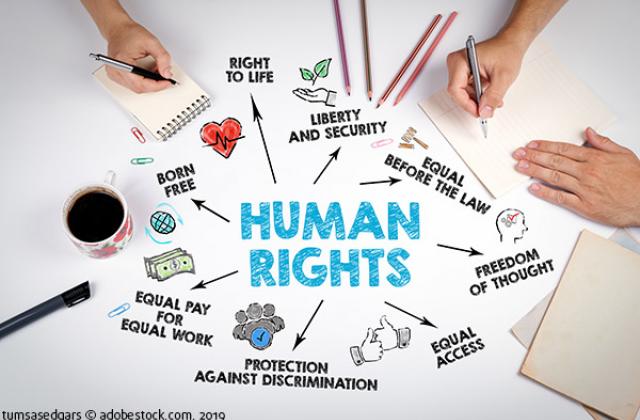Help us make the FRA website better for you!
Take part in a one-to-one session and help us improve the FRA website. It will take about 30 minutes of your time.
Soutien aux systèmes et aux défenseurs des droits de l’homme
<p>Many organisations work to defend your rights. We help their efforts with independent evidence, advice and expertise.</p>
<p>We support their frontline work. And we shine a light on potential risks and priority areas. Together we make your rights a reality.</p>
Highlights
- Report / Paper / Summary11octobre2021This report proposes a framework for becoming, and functioning as, a ‘human rights city’ in the EU. It includes ‘foundations’, ‘structures’ and ‘tools’ for mayors, local administrations and grassroots organisations to reinforce fundamental rights locally. It is based on existing good practice and expert input by representatives of human rights cities in the EU, academic experts, international organisations and city networks.
- PageThe European Union Fundamental Rights Information System EFRIS is a Human Rights Gateway, bringing together data and information from existing human rights databases, and enables viewing and analysis of relevant assessments of fundamental rights in the EU.
- Report / Paper / Summary18janvier2018Civil society organisations in the European Union play a crucial role in promoting fundamental rights, but it has become harder for them to do so – due to both legal and practical restrictions. This report looks at the different types and patterns of challenges faced by civil society organisations working on human rights in the EU.
- Handbook / Guide / Manual23octobre2018En tant que catalogue très moderne des droits de l’homme, la Charte inclut de nombreux
droits absents des déclarations de droits établies de longue date, et sa lecture
suscite une impression très favorable. Les personnes qui connaissent les grands
principes du droit de l’UE sont en général capables de réciter rapidement que la Charte
est toujours contraignante pour l’UE, et l’est pour les États membres uniquement
« lorsqu’ils mettent en oeuvre le droit de l’Union ». Mais que signifie cette expression
souvent citée de l’article 51 de la Charte ?



























